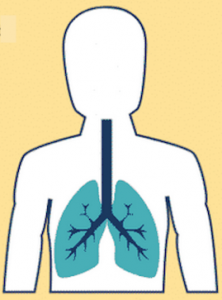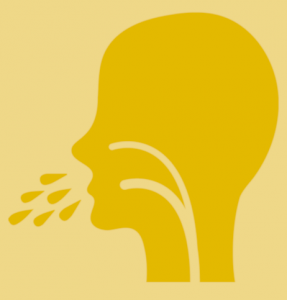1. A Culprit Behind Common Colds
When diagnosed in human beings, coronaviruses infect cells of the upper respiratory and gastrointestinal tract and are responsible for about one third of all common colds.
2. SARS and MERS Strains
Both SARS coronavirus (SARS-CoV) and MERS coronavirus (MERS- CoV) are life-threatening severe respiratory infections in the same viral family.
3. How It Is Spread
 Coronaviruses are spread by close person to person contact through droplets of saliva or mucous that are spread during coughing or sneezing. Droplets can be cast as much as 3 feet from the infected individual and can be contracted by surface contact for up to two hours after exposure.
Coronaviruses are spread by close person to person contact through droplets of saliva or mucous that are spread during coughing or sneezing. Droplets can be cast as much as 3 feet from the infected individual and can be contracted by surface contact for up to two hours after exposure.
4. Symptoms of Coronavirus
The typical symptoms of the coronavirus mimic those experienced with the common cold or seasonal allergies. They can include itchy, watery eyes, chest and nasal congestion, sore throat, mild headaches, and body aches.
5. Outbreak Data
While the number of cases of coronavirus are far greater in Asia, on January 20, 2020, the Centers for Disease Control and Prevention (CDC) confirmed more than 7,711 cases of a virulent strain of the coronavirus (2019-nCoV) and 200 fatalities from the beta strain in the U.S.
6. Diagnosing Coronavirus
Blood serum samples and laboratory testing of respiratory specimens will confirm whether the individual has contracted the coronavirus. If a persistent fever is present, further testing for SARS or MERS will be conducted, particularly if the individual has recently traveled overseas.
7. Reducing Infection Risk 
One of the best defenses against contracting the coronavirus is to use a high-quality hand sanitizing gel throughout the day. Wash hands with hot water and soap, and use a disinfectant solution for surfaces and countertops at home and at work. Avoid crowded areas when and where possible.
8. Talk to Your Doctor
If you are feeling more fatigued than usual, increased pain or inflammation in your joints with symptoms of a cold virus, talk to your physician. Also, consult your physicians if these symptoms are evident in children, seniors, or more susceptible immune-compromised individuals in your home.
For clinical grade supplements and vitamins, visit Rob Keller MD.

This is an affiliate link.
Sources:
www.cdc.gov/coronavirus/about/symptoms.html
morgridge.org/outreach/teaching-resources/virology-immunology/coronavirus-fact-sheet/
www.cbsnews.com’live-updates/china-conronvisus-outbreak-us-plans-wuhan-evacuation-death-toll-number- cases-rises-today-2020-01-28/
www.bbc.com/news/world-asia-china-51305526

